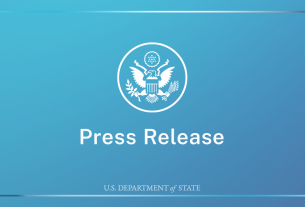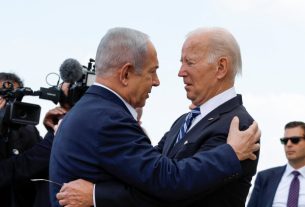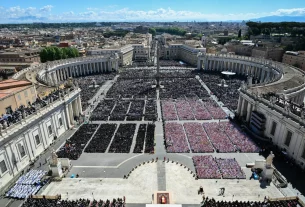Path to Reconciliation: In light of ongoing tensions between Chief Afe Babalola, SAN, and Dele Farotimi, a call for de-escalation and personal resolution has emerged. While legal action has been initiated by Chief Babalola and more recently a petition sent to the Legal Practitioners Disciplinary Committee, LPDC, asking that Farotimi’s name be removed from the roll of legal practitioners in Nigeria, there is a growing consensus within the legal community that both parties, as esteemed figures in Nigeria’s legal sector, should seek a peaceful and amicable resolution, this call is also supported by us to enable peace to reign.
Releasing the accused and stopping all other actions both legal or otherwise at this point would be a welcome development pending further resolution by notable figures within the fold.
This move would not only safeguard their personal reputations but also promote harmony within the profession as a whole as well as uphold and enhance others to observe the caveat and legal maxim of “innocent until proven guilty”.
Background to the Conflict
The dispute between Afe Babalola and Dele Farotimi originated from allegations made by Farotimi in his book, Nigeria and its Criminal Justice System. In his writing, Farotimi accused several prominent members of Nigeria’s judiciary, including Supreme Court Justices and legal practitioners such as Babalola, Olu Daramola SAN, and Ola Faro Esq., of corruption and unethical practices. These claims have sparked controversy, particularly as they challenge the integrity of the judicial system, an institution that is highly regarded in the country.
Farotimi’s book presented a critical analysis of the Nigerian legal system, which, according to his perspective, was riddled with inefficiencies and compromised by corrupt practices. However, some of his statements have been described by Babalola and his legal team as defamatory, misrepresenting facts and tarnishing the reputations of respected legal professionals.
Babalola’s Legal Response
In December 2024, Ola Faro, a senior partner at Afe Babalola & Co., submitted a petition to the Legal Practitioners Disciplinary Committee (LPDC) on behalf of his law firm. The petition alleges that Farotimi violated multiple provisions of the Rules of Professional Conduct for Legal Practitioners. Specifically, it claims that Farotimi’s public statements, particularly in his book, were unbecoming of a legal professional, accusing the judiciary and individual lawyers of unlawful conduct without substantiated proof.
The petition also raised concerns that these actions could harm the reputation of the Nigerian legal profession as a whole. Farotimi’s conduct, according to Babalola’s team, obstructed the administration of justice and disrespected judicial officers by making public allegations that should have been addressed through appropriate legal channels rather than public defamation.
A Call for Internal Resolution
While the legal petition marks an escalation, voices within the legal community are urging both Babalola and Farotimi to explore personal and internal means of resolving their differences. It is argued that as two respected figures in Nigeria’s legal profession, their actions have a profound influence on the broader legal landscape, and a public dispute could cause irreparable harm to the public perception of the judiciary.
It is suggested that both parties engage in direct dialogue, possibly with the help of a neutral mediator, to discuss the issues at hand and resolve the matter without resorting to further legal action. Legal professionals and senior figures within the Nigerian Bar Association (NBA) have expressed their hope that this situation can be diffused in a manner that fosters mutual respect and preserves the dignity of both individuals and the profession.
The Role of the Legal Community
The Nigerian legal sector stands at a crossroads in this matter. Many believe that it is essential for both Chief Babalola and Farotimi to reflect on the broader implications of their dispute. As influential figures, their approach to conflict resolution can set a powerful example for younger practitioners and aspiring lawyers, demonstrating that even in the face of public disputes, dialogue and understanding can pave the way to peaceful resolutions.
Senior members of the legal profession are encouraged to facilitate discussions between Babalola and Farotimi, ensuring that the matter is handled privately and with respect for all involved parties. It is hoped that both men, who have each made significant contributions to the Nigerian legal landscape, can find a way to resolve their differences in a manner that strengthens rather than divides the profession.
Moving Forward
As this situation unfolds, it remains crucial that both parties consider the long-term consequences of their actions. The LPDC will likely play a key role in addressing any formal complaints, but it is hoped that, through mutual dialogue, Chief Babalola and Farotimi can reach a resolution that reflects the values of professionalism and integrity that define the Nigerian legal community.
Ultimately, this conflict serves as a reminder of the importance of communication, respect, and accountability within the legal profession. Both Chief Babalola and Farotimi are encouraged to put aside personal grievances and prioritize the greater good of the legal system, seeking to resolve their differences in a constructive and peaceful manner.
The Nigeria legal sector and both parties involved in this altercation should be reminded that the whole world is watching and a de-escalation at this point would be the noble and rightful path to take.
Photo by Pavel Danilyuk: https://www.pexels.com/photo/themis-sculpture-with-libra-8112201/



